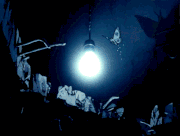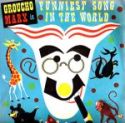|
Bogus Adventure posted:
A weird part of the John Carter stories is how he isn't just some normal guy who accidentally goes to Mars, he mentions at the beginning of the first book that he's an amnesiac immortal. The book also has a conceit that the whole thing is a true story given to Burroughs by a real John Carter.
|
|
|
|

|
| # ? Apr 25, 2024 21:31 |
|
Squizzle posted:ive read that verne was not at all a fan of wells's work, because he was like, “you dont even explain how anything works!!! you cant just say that it does!! that is not science!!!!!” and wells was like “lmao. hes invisible, boom. the machine goes thru time. eat my rear end” Hard vs soft science fiction p much never changed much from this
|
|
|
|
muscles like this! posted:A weird part of the John Carter stories is how he isn't just some normal guy who accidentally goes to Mars, he mentions at the beginning of the first book that he's an amnesiac immortal. The book also has a conceit that the whole thing is a true story given to Burroughs by a real John Carter.
|
|
|
|
Ghost Leviathan posted:Hard vs soft science fiction p much never changed much from this i know i lost this fight long ago and resoundingly, but i liked it when hard and soft scifi were terms to describe whether the plot was driven by the “hard” or “soft”, ie social, sciences. hard science or soft science fiction, not hard or soft science fiction there is a ton of great scifi driven by anthropological, sociological, linguistic, or even economic themes. ursula k leguin, chip delany, octavia butler, john brunner—some of the most amazing scifi writers of the 20th century were asking questions about culture, and society, and communication. and theyre applying concepts from the social sciences at the time to explore those questions relevant to the thread topic, rokeya sakhawat hossein wrote sultana’s dream in like 1904(?) and its a rad piece of soft scifi
|
|
|
|
habituallyred posted:poo poo, I should have looked it up before I posted, started in 1949. 29 years off. I'll think of a way to make up for that mistake later. Doc Smith's Lensman series might not yet be 100 years old, but his Skylark series is! (Well, it was written 100 years ago, it wouldn't be actually published for another 8, but let's ignore that.) Chemist Dick Seaton discovers a curious reaction when he does some tests on an unknown heavy metal (metal x): quote:Well, I was trying to electrolyze it out when the fireworks started. The solution started to fizz over, so I grabbed the beaker--fast. The wires dropped onto the steam-bath and the whole outfit, except the beaker, took off out of the window at six or eight times the speed of sound and in a straight line, without dropping a foot in as far as I could keep it in sight with a pair of good binoculars. And my hunch is that it's still going. When this metal is in contact with copper in the presence of a field generator (built by his colleague, Marc "Blackie" DuQuesne) it flies off in a perfectly straight direction. Dick does when any person would do in this situation and steals the remaining samples of metal x from his employer and runs to his rich buddy, Martin Crane, and tells him they can build a space ship and become filthy rich. Expecting sabotage (on account of they just made several enemies) they build two space ships: one openly (out of steel they know to be tampered) and one in secret (the titular Skylark of Space). Soon, the notorious World Steel Company sends their hired goons (lead by DuQuesne) to rough poo poo up, but in the process they accidentally pull down the "acceleration" lever in the tampered ship, trapping the goons, and Dick and Martin's beloveds, out in deep space. By the time DuQuesne figures out what's up, they're a billion miles away and trapped in orbit around a black hole. quote:Thus time wore on--Perkins dead; Margaret unconscious, Dorothy lying in her seat, her thoughts a formless prayer, buoyed only by her faith in god and her lover; DuQuesne self-possessed, smoking innumerable cigarettes, his keen mind at grips with its most desperate problem, grimly fighting until the very last instant of life--while the powerless spaceship fell with an appalling velocity, and faster and yet faster, toward that cold and desolate monster of the heavens. Thankfully, Dick has a (The book doesn't acknowledge the speed of light. You can just accelerate as long as you want to whatever velocity you want, for as long as you have fuel.) After voyaging across a few planets, encountering space-gods, instigating a war, and establishing interplanetary trade relations, they finally return home in the Skylark 2, built from cool transparent indestructible space metal. Dick and Martin's business relationship ends with them being effectively overlords of Earth, on account of having acquired incredible wealth from trade and being the only force on Earth able to wage interplanetary war. DuQuense parachutes out of the Skylark with forbidden science knowledge and the hope of eventually overthrowing Dick and Martin to become space king himself. He'll cause trouble in the sequels. quote:Hmmm. He must have picked up a Kondalian parachute. You can't quite fit one in your pocket, but pretty near. But I can't say I'm sorry he got away. . . . The whole thing reads like a cross between an edisonade and a post-collegiate Rover Boys story. The characters are blank, the drama is forced, and there's no real sense of danger. A lot of the story can be graciously described as "of its time." It is credited as the first space opera, inspired a hundred imitators, and in the words of Frederik Pohl, "[did] more to change the nature of all the science fiction written after it than almost any other single work." And in true Doc Smith fashion, the sequels become increasingly ludicrous. The third book ends in Dick becoming a robot god. There's a fourth book. Schwarzwald fucked around with this message at 22:58 on Jun 2, 2020 |
|
|
|
Schwarzwald posted:(The book doesn't acknowledge the speed of light. You can just accelerate as long as you want to whatever velocity you want, for as long as you have fuel.) Hey, Einstein's theory is just a theory, as the book says. Also interesting is that there were multiple versions of the novel, a thing I only realized when I read the Project Gutenberg version a few years ago and it didn't entirely line up with memories of the Pan UK imprint I'd read decades earlier. Part of this is due to Smith getting Lee Harwkins Garby, the wife of a college friend, to rewrite that parts involving women to be more believable. Apparently they revised the novel multiple times over the years. Her name isn't on the cover, but she appears as a co-author in the manuscript. Hobnob fucked around with this message at 21:37 on Jun 2, 2020 |
|
|
|
Might not be 100% sci-fi but I thought the Carnacki The Ghost Finder storied still hold up Project Gutenberg link Some tech, some spells, all detective 
|
|
|
|
grate deceiver posted:I've read The Night Land, and while it had an interesting setting and atmosphere, William Hope Hodgson couldn't write for poo poo. It's a terrible slog. Going on for literal pages about the dark things that darkly dwell in the dark darkness. I haven't acutally gotten around to reading that yet, but have read one or two other stories by the same author, and they were written in a more normal type of prose. Hodgson famously chose to write The Night Land in an excruciatingly obtuse manner. quote:The guy was also really into the storytelling device where events aren't narrated as they happen, but instead it's someone telling you a story, or a dream, or something like that. In The Night Land, the narrator and MC is actually a person from like the 18th century, that astral projects into his future reincarnation, and is retelling what he saw there. There's also somehing about some woman he's into being reincarnated in that future because they're destined lovers or something. This pretty much never comes up after the intro is done and has no bearing on the actual story. Dead loving common in older fiction, either it's someone narrating a dream or a vision, or it's a manuscript found by the author, or something. Take The Worm Ouroboros for example (yeah, yeah, it's only 98 years old) where there's a framing story about a contemporary human astral-projecting to Mercury to observe this whole weird fantasy world, and then after a chapter or two the author seems to forget about him and he is never mentioned again. Hell, even The Lord of the Rings (waaaaaay too modern to fit in this thread) pretends to be translated from an ancient manuscript.
|
|
|
|
grate deceiver posted:I've read The Night Land, and while it had an interesting setting and atmosphere, William Hope Hodgson couldn't write for poo poo. It's a terrible slog. Going on for literal pages about the dark things that darkly dwell in the dark darkness. The House on the Borderland is bizarre too. It starts out as sort of a straightforward "weird tale" -- including a "found diary" frame story, of course -- about some pig creatures the narrator discovers near his home. But then out of nowhere time starts fast-forwarding and it suddenly goes off into this very lengthy, extended sequence that's basically the literary equivalent of the cosmic space trip from 2001. It all seems extremely symbolic (or something) but there's no making heads or tails of what any of it means. Hodgson is cited as an influence and precursor of Lovecraft, but this book is much stranger than anything I ever read by Lovecraft.
|
|
|
|
Dracula is boring but in a good way if that makes sense.
|
|
|
|
I think a lot of it is that epistolary storytelling was really big in the sci-fi style even long after authors had started exploring ideas that really don't work with it.
|
|
|
|
Crow Enthusiast posted:The House on the Borderland is bizarre too. It starts out as sort of a straightforward "weird tale" -- including a "found diary" frame story, of course -- about some pig creatures the narrator discovers near his home. But then out of nowhere time starts fast-forwarding and it suddenly goes off into this very lengthy, extended sequence that's basically the literary equivalent of the cosmic space trip from 2001. It all seems extremely symbolic (or something) but there's no making heads or tails of what any of it means. Hodgson is cited as an influence and precursor of Lovecraft, but this book is much stranger than anything I ever read by Lovecraft. I would recommend the graphic novel adaptation with art by the very good Richard Corben. The story is trippy but easier to follow with art and narration.
|
|
|
|
i haven't read any 100 yo sci fi but i assume it's all really racist
|
|
|
|
pointsofdata posted:i haven't read any 100 yo sci fi but i assume it's all really racist oh, absolutely
|
|
|
|
Groke posted:Dead loving common in older fiction, either it's someone narrating a dream or a vision, or it's a manuscript found by the author, or something. Take The Worm Ouroboros for example (yeah, yeah, it's only 98 years old) where there's a framing story about a contemporary human astral-projecting to Mercury to observe this whole weird fantasy world, and then after a chapter or two the author seems to forget about him and he is never mentioned again. He is, a lot, but only in the other books. Early authors of the weird mostly realized that it was stupid to just tell people “oh yeah I saw a wizard riding a griffin one time, what of it”. They either had to blame their griffin wizards on some other (fictional) guy you can choose to disbelieve without throwing the book away, or psychotically will-to-power their way right through it as if daring you to believe that there isn’t a wizard riding a griffin at you right now. Eddison at first seems to be the former, but in the other books you realize he’s actually the latter. skasion fucked around with this message at 18:41 on Jun 9, 2020 |
|
|
|
It was pretty common for a while to have every story be presented as a totally real thing that definitely happened, the author's good explorer friend told them so and gave them permission to write it down/copy their journal/if you go to the far east and/or Caribbean they're still talking about it but you probably won't do that
|
|
|
|
A Voyage to Arcturus is 100 this year, so just about fits in the thread! This is a really unique one. One day some well-off British folks decide to hold a seance, not so much because they’re interested in speaking to dead people as much as because it’s a trendy social occasion. Two strangers arrive late: giant, adventurous Maskull and taciturn Nightspore. Before their eyes, the medium summons what appears to be the ghost of a smiling young man. Suddenly a loud rear end in a top hat called Krag busts in, snaps the ghost’s neck, breaks up the party, and gets Maskull and Nightspore to himself. Telling them, “Surtur has gone, and we are to follow him,” he offers to take Maskull and Nightspore on a one-way trip to the planet Tormance, orbiting the double stars of Arcturus, in a starship which he keeps in a deserted observatory in Scotland...after they get shitfaced and let Krag do a blood transfusion on them with a pocket knife so that the alien gravity won’t crush them to death, of course. The book only gets crazier from here! Maskull finds himself abandoned alone on Tormance, seeing colors that don’t exist on earth, developing and losing telepathic powers, growing and shedding new organs and limbs every time he sleeps, getting into philosophical arguments with the widely various and entirely weird locals, having sex with and/or killing them, and maybe at some point finding the people he came here with, though maybe not, since he has no hope of return anyway. There’s no book like this, to be honest. Its closest antecedent is MacDonald’s Phantastes, but that takes place in an eccentric fairytale setting and doesn’t have anything like the bizarre/cosmic quality of this book. CS Lewis attempted to write a couple responses from a more orthodox point of view (his Space Trilogy) but the resemblances are pretty superficial in the end. Not the most stylishly written, but if you can make it through Barsoom or Lensman books, you can and should read this. skasion fucked around with this message at 18:34 on Jun 9, 2020 |
|
|
|
I gave the first Lensman book a go, but after the fourth Meeting Minutes of Men Who All Talk The Same in 30 pages I'm wondering if it's worth persisting through. I did love the Foundation Trilogy, dry as it was.
|
|
|
|
skasion posted:A Voyage to Arcturus is 100 this year, so just about fits in the thread! This is a really unique one. 
|
|
|
|

|
| # ? Apr 25, 2024 21:31 |
|
I've only read one book by Edith Nesbit, called The Story of the Amulet (1906, part of the Psammead trilogy), and i read it a very long time ago as a child, but it has stuck with me for her well-researched depiction of the ancient civilizations these Victorian-era kids visited with the help of a weird creature called the Psammead and an Egyptian amulet that allows them to travel through time, including a utopian future. Although she wrote for children, her writing is erudite and engaging. She invented the children's adventure story, specifically the format of a small group of plucky kids getting into fantastic and threatening situations and emerging victorious. She was obviously an influence on C.S. Lewis' Narnia series. Enid Blyton and JK Rowling owe her a debt of gratitude as well. Gutenberg link https://www.gutenberg.org/ebooks/837 https://en.wikipedia.org/wiki/The_Story_of_the_Amulet
|
|
|
























